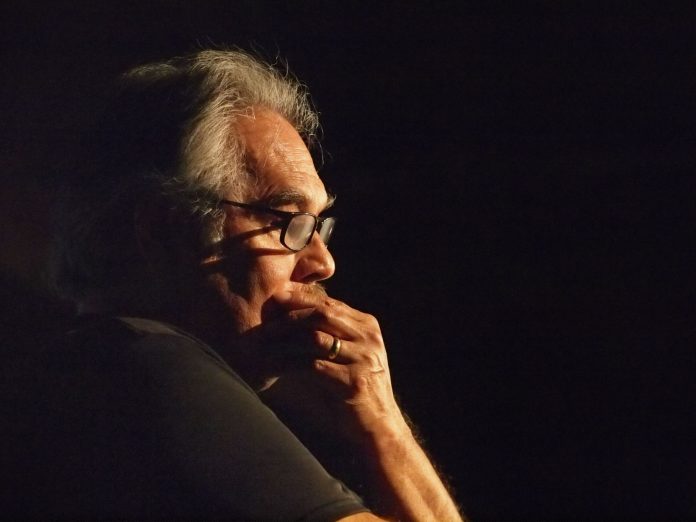Luis Valdez, a proud 45-year resident of San Juan Bautista, can’t wait to bring a slice of San Benito County to the nation’s capitol.
The 76-year-old Valdez will be in the East Room of the White House on Thursday as President Barack Obama presents the National Medal of Arts. According to the arts.gov website, it is awarded “to individuals or groups who are deserving of special recognition by reason of their outstanding contributions to the excellence, growth, support and availability of the arts in the United States.”
Valdez is one of 12 people with the distinction of being a National Humanities Medal recipient in conjunction with the National Medal of Arts, which is the highest award given to artists by the federal government.
“I’m quite honored,” said Valdez, who created Zoot Suit, which became one of the first plays by a Latino to be presented on Broadway, and wrote and directed La Bamba, the Ritchie Valens story starring Lou Diamond Phillips. “I’m so happy this happened before Obama’s term is over—this is one of his last official functions. He’s awarded lot of medals to a lot of significant artists, and it’s important to be in this group.”
“Being a part of this group makes it that much more special,” he went on. “Morgan Freeman is fantastic. I’ve been a fan of not only him but so many of the other people in this group over the years.”
A playwright, actor, writer and director, Valdez has made a tremendous impact on the social fabric of the American conscience through a variety of mediums including the famed El Teatro Campesino, which launched the Chicano theater movement. Chronicling the Latino experience in America, Valdez directed El Teatro as it toured migrant camps performing plays on the back of a flatbed truck.
One day during the 1965 Delano Grape Strike, Valdez saw his life flashing before him as a disgruntled farmer—standing four feet away—pointed a gun at Valdez.
“I didn’t know what to think at that moment,” he said. “It’s something to being staring down the barrel of a gun no matter how small—I think it was a 38 pistol—but he could’ve blown my head off.”
As Valdez stared down the barrel of the gun, he had one thought: Was he willing to die for his beliefs? The answer was yes. Fortunately, the person didn’t pull the trigger.
“If I died at that moment, I die,” said Valdez, who rallied farm workers alongside Cesar Chavez, the civil rights activist who co-founded the National Farmworkers Association and devoted his life to improving the treatment of workers. “It’s one thing to die on the stage—it’s quite another to die literally.”
There were other incidents in which Valdez was roughed up and beaten in jail, but he knew it came with the territory.
“The possibility for violence is always there in any strike,” he said. “But one of the great things El Teatro did was it defused that type of violence because we were out there performing. They can’t attack the circus; you don’t attack the clown. We were making our points, and they didn’t know how to respond. If we came in a more hateful manner, there would be bullets flying.”
Valdez, who has been married to his wife, Lupe, for 47 years, had effusive praise for San Benito County, saying it reminded him of San Jose in the 1940s and 1950s, when the area was littered with farms and wide open spaces.
“This is God’s country to me,” he said. “It’s one of the best kept secrets in California.”
For “La Bamba,” Valdez and his crew spent the first week of the movie shooting a scene in Hollister.
“We captured distinct images in Hollister, and it’s always going to have a soft spot in my heart,” he said.










